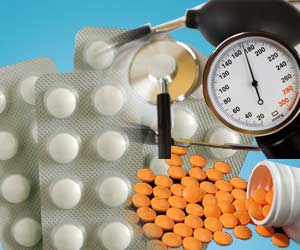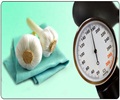- The Seventh Report of the Joint National Committee on the Prevention, Detection, Evaluation, and Treatment of High Blood Pressure (JNC 7)
- Cecil Medicine, 23rd Ed.
About
Hypertension affects about a billion individuals worldwide. It is a silent killer. If undetected and untreated it silently damages the blood vessels, heart, brain, and kidneys. A person is said to have hypertension (i.e. high blood pressure) when his arterial blood pressure is elevated above the normal range expected in his age group. There are two terms that one needs to know: Systolic BP and Diastolic BP. When a doctor records your blood pressure as 120/80 mm Hg, it means that 120 mm Hg is the systolic blood pressure (BP) and 80 mm Hg is the diastolic BP.

Based on these two blood pressure values, you may belong to one of the following groups:
| BP CLASSIFICATION | SYSTOLIC BP (mm Hg) | DIASTOLIC BP (mm Hg) |
| Normal | <120 | And <80 |
| Pre Hypertensiive | 120-139 | Or 80-89 |
| Stage 1 Hypertension | 140-159 | Or 90-99 |
| Stage 2 Hypertension | >=160 | Or >=100 |
Arterial hypertension is the leading cause of death in the world and the most common cause for an outpatient visit to a physician. The higher your blood pressure, the greater is the chance of heart attack, heart failure, stroke, and kidney disease. Understanding the benefits of lowering blood pressure is thus important.
A common fallacy that most people have is that a healthy lifestyle is all that is required to control hypertension. Prescription medication is the cornerstone of an effective antihypertensive therapy. Lifestyle modification can only be an adjunct, but never an alternative. It is not possible to bring down blood pressure to optimum levels by lifestyle changes alone.
Clinical trials prove that antihypertensive therapy can bring significant reduction in the incidence of stroke (by up to 40%), myocardial infarction (by up to 25%) and heart failure (by 50%). Any regimen should include lifestyle modification.
The earlier guidelines recommended a trial of lifestyle modification alone for an unspecified time before a prescription of antihypertensive medication. But recent trials do not agree to this. A greater urgency is required in attaining rapid pharmacologic control of high blood pressure so as to lessen cardiovascular risk. This is because non pharmacologic reductions in blood pressure are often small and there is a high chance of recidivism.













